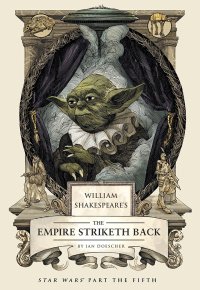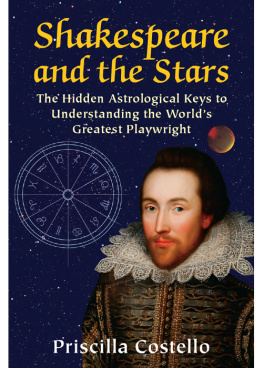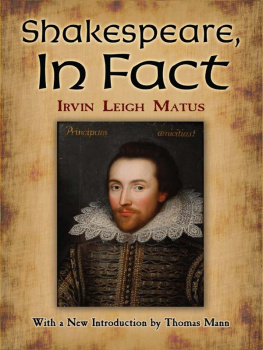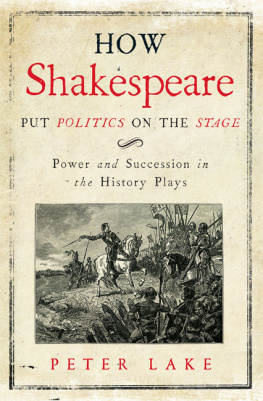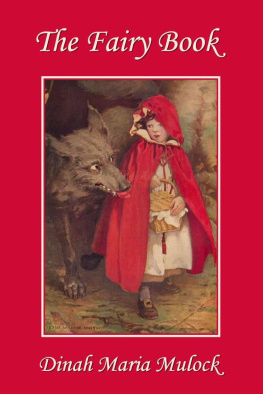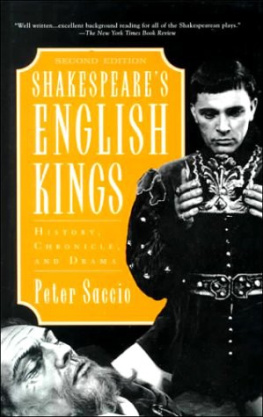Tales from Shakespeare
by
Charles and Mary Lamb
Yesterday's Classics
Chapel Hill, North Carolina
Cover and Arrangement 2010 Yesterday's Classics, LLC
All rights reserved. No part of this book may be reproduced or retransmitted in any form or by any means without the written permission of the publisher.
This edition, first published in 2010 by Yesterday's Classics, an imprint of Yesterday's Classics, LLC, is an unabridged republication of the work originally published by Harper & Brothers in 1918. This title is available in a print edition (ISBN 978-1-59915-173-1).
Yesterday's Classics, LLC
PO Box 3418
Chapel Hill, NC 27515
Yesterday's Classics
Yesterday's Classics republishes classic books for children from the golden age of children's literature, the era from 1880 to 1920. Many of our titles are offered in high-quality paperback editions, with text cast in modern easy-to-read type for today's readers. The illustrations from the original volumes are included except in those few cases where the quality of the original images is too low to make their reproduction feasible. Unless specified otherwise, color illustrations in the original volumes are rendered in black and white in our print editions.
Artist's Preface
Since Lamb wrote these tales from the plays of Shakespeare, as he says"especially for the young mind"many efforts have been made by others, only to invariably produce a result inferior in every way, and so, quickly vanish from the reading world while these tales have grown in favor and esteem by thoughtful American parents.
I know a dear lady who has for many years made it almost a duty at the holiday season to procure one or more copies of "Lamb's Tales" for presentation to some young reader among her numerous relatives and friends.
After reading the tales the reason of its excellence is fully apparent. Charles Lamb was a diligent student of Shakespeareappreciative of, and well fitted to write good English. We feel the truth of it when he says he took "particular pains to both amuse and instruct the youthful mind." He wisely refrained from giving extracts of the well-known orations and speeches, such as spoken by Wolsey or Antony. He tells the tales with surprising directness and simplicityas far as possible in Shakespeare's own words. Often he leaves out well-known characters who do not assist in developing the story, yet, there are several, like Touchstone, Jaques, etc., in "As You Like It," so revered generation after generation, that the illustrator has ventured to picture them although they were not described in the text.
Lamb's greatest accomplishment in this volume is to give the average reader of any age a plain, simple description of the story and plot which, after reading the plays, even the adult often does not get or rightly understand. We are carried away by the splendor of words and thought. That is the reason why, it seems to me, these tales can be read with great advantage by those adults or parents who take for granted this volume is especially for younger readers. The plays are far more edifying after these tales have been read, because the magnificence of Shakespeare can be enjoyed to the fullest extent.
It is remarkable that the scenes of nearly all Shakespeare's plays are laid outside his native land, mostly in Italy and Greece; at the grandest period of the world's history, disclosing with remarkable fidelity intimate details in the lives of famous men and women that would be unknown to the average reader outside of classic literature.
L OUIS R HEAD
Preface
The following Tales are meant to be submitted to the young reader as an introduction to the study of Shakespeare, for which purpose his words are used whenever it seemed possible to bring them in; and in whatever has been added to give them the regular form of a connected story, diligent care has been taken to select such words as might least interrupt the effect of the beautiful English tongue in which he wrote: therefore, words introduced into our language since his time have been as far as possible avoided.
In those Tales which have been taken from the Tragedies, the young readers will perceive, when they come to see the source from which these stories are derived, that Shakespeare's own words, with little alteration, recur very frequently in the narrative as well as in the dialogue; but in those made from the Comedies the writers found themselves scarcely ever able to turn his words into the narrative form: therefore it is feared that, in them, dialogue has been made use of too frequently for young people not accustomed to the dramatic form of writing. But this fault, if it be a fault, has been caused by an earnest wish to give as much of Shakespeare's own words as possible: and if the "He said" and "She said," the question and the reply, should sometimes seem tedious to their young ears, they must pardon it, because it was the only way in which could be given to them a few hints and little foretastes of the great pleasure which awaits them in their elder years, when they come to the rich treasures from which these small and valueless coins are extracted; pretending to no other merit than as faint and imperfect stamps of Shakespeare's matchless image. Faint and imperfect images they must be called, because the beauty of his language is too frequently destroyed by the necessity of changing many of his excellent words into words far less expressive of his true sense, to make it read something like prose; and even in some few places, where his blank verse is given unaltered, as hoping from its simple plainness to cheat the young readers into the belief that they are reading prose, yet still his language being transplanted from its own natural soil and wild poetic garden, it must want much of its native beauty.
It has been wished to make these Tales easy reading for very young children. To the utmost of their ability the writers have constantly kept this in mind; but the subjects of most of them made this a very difficult task. It was no easy matter to give the histories of men and women in terms familiar to the apprehension of a very young mind. For young ladies, too, it has been the intention chiefly to write; because boys being generally permitted the use of their fathers' libraries at a much earlier age than girls are, they frequently have the best scenes of Shakespeare by heart, before their sisters are permitted to look into this manly book; and, therefore, instead of recommending these Tales to the perusal, of young gentlemen who can read them so much better in the originals, their kind assistance is rather requested in explaining to their sisters such parts as are hardest for them to understand: and when they have helped them to get over the difficulties, then perhaps they will read to them (carefully selecting what is proper for a young sister's ear) some passage which has pleased them in one of these stories, in the very words of the scene from which it is taken; and it is hoped they will find that the beautiful extracts, the select passages, they may choose to give their sisters in this way will be much better relished and understood from their having some notion of the general story from one of these imperfect abridgments;which if they be fortunately so done as to prove delight to any of the young readers, it is hoped that no worse effect will result than to make them wish themselves a little older, that they may be allowed to read the Plays at full length (such a wish will be neither peevish nor irrational). When time and leave of judicious friends shall put them into their hands, they will discover in such of them as are here abridged (not to mention almost as many more, which are left untouched) many surprising events and turns of fortune, which for their infinite variety could not be contained in this little book, besides a world of sprightly and cheerful characters, both men and women, the humor of which it was feared would be lost if it were attempted to reduce the length of them.


